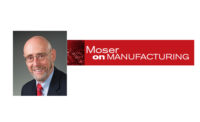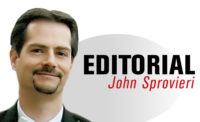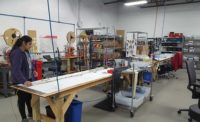From the 1960s through the 1990s, business was humming at Northwest Regulator Supply in Portland, OR. There the company was busy developing and manufacturing test leads for alternators and starters used by retail auto parts stores and repair shops. The devices help ensure that Northwest’s customers’ products are in good working order, thereby eliminating warranty returns.
Unfortunately, like many OEMs, Northwest Regulator Supply was struggling by the start of the 21st century. It was around this time that China joined the World Trade Organization and emerged as a prominent destination for production offshoring. By 2006, Northwest’s sales were flattening and profit margins were decreasing.
Management knew the company had to change to survive.
After researching lean manufacturing and the Toyota Production System, leaders of the company wanted to implement some of these concepts in their operation. They contacted the Oregon Manufacturing Extension Partnership (OMEP) in June 2006 for help.
Manufacturing extension partnerships are state-based, federally run consulting firms created to help small and midsized manufacturers improve their operations.
They are administered by the National Institute of Standards & Technology.
OMEP took the lead and, with the help of the Portland Development Commission and Arezzini Associates, worked with Northwest’s management team to develop a marketing strategy for top line growth.
In a short period of time, Northwest changed its name to AmFor Electronics, moved the company’s entire operations to a new facility more conducive to product flow, reorganized the company to be more focused on specific market segments (including cable and wire harnesses), and acquired the assets, along with a couple of large customers, from a smaller competitor.
Next, OMEP provided training and implementation guidance in lean manufacturing and 5S. AmFor established a lean team, which developed and implemented the company’s lean plan over the next few months. All the while, the company maintained its position as a leader in the test and measurement device market.
The new approach has turned AmFor around, enabling the company to become much more efficient while significantly improving quality assurance. The company also began to bolster its responsiveness and embrace new technologies, including the electric vehicle industry.
“A local OEM approached us for help repairing a large shipment of wire harnesses the OEM had purchased from a Chinese manufacturer,” says Jerry Koopman, CEO for AmFor Electronics. “The harnesses were inexpensive, but they didn’t meet the customer’s
specifications so they couldn’t use them.
“We were able to quickly resolve the situation without further delaying the customer’s production process. In so doing, we were able to win the customer’s business and now we make harnesses for them. Not only do our harnesses exceed the customer’s quality standards, but we are able to be cost-competitive with the Chinese imports.”
AmFor now supplies cable and wire harnesses to a wide range of clientele in the automotive, electric vehicle, transportation and industrial equipment industries throughout North America. It also exports about 10 percent of its harnesses to customers in Canada, Mexico and Hungary.
Prior to making the OMEP-led changes, AmFor had 24 employees. Today, after reshoring several manufacturing jobs, the company has 55 employees and is experiencing sales growth that could lead to added shifts.
For more information on the OMEP, call 503-406-3770 or visit www.omep.org.
Reborn Company Reshores Harness Manufacturing Jobs
From the 1960s through the 1990s, business was humming at Northwest Regulator Supply in Portland, OR.

In 2006, Northwest Regulator Supply changed its name to AmFor Electronics and began manufacturing cable and wire harnesses. Photo courtesy Oregon Manufacturing Extension Partnership

AmFor Electronics has been developing and making test leads for alternators and starters for more than 50 years. Photo courtesy Oregon Manufacturing Extension Partnership


